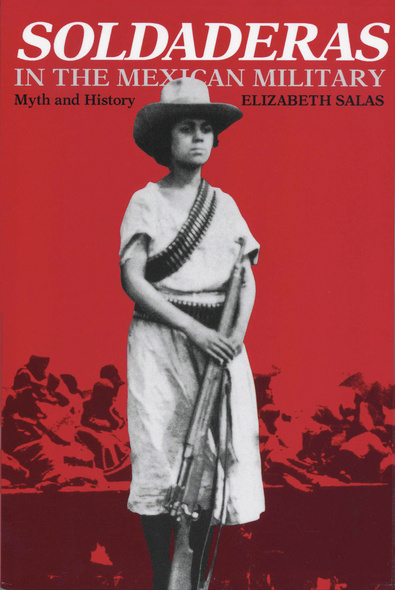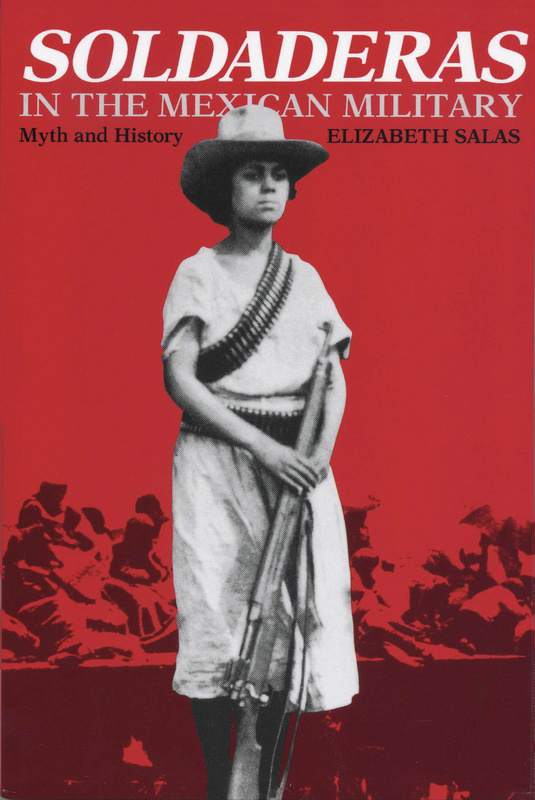Our shopping cart is currently down. To place an order, please contact our distributor, UTP Distribution, directly at utpbooks@utpress.utoronto.ca.
Since pre-Columbian times, soldiering has been a traditional life experience for innumerable women in Mexico. Yet the many names given these women warriors—heroines, camp followers, Amazons, coronelas, soldadas, soldaderas, and Adelitas—indicate their ambivalent position within Mexican society. In this original study, Elizabeth Salas explores the changing role of the soldadera, both in reality and as a cultural symbol, from pre-Columbian times up to the present day.
Drawing on military archival data, anthropological studies, and oral history interviews, Salas first explores the real roles played by Mexican women in armed conflicts. She finds that most of the functions performed by women easily equate to those performed by revolutionaries and male soldiers in the quartermaster corps and regular ranks. She then turns her attention to the soldadera as a continuing symbol in Mexican and Chicano culture, examining the image of the soldadera in literature, corridos, art, music, and film.
Challenging many traditional stereotypes, Salas finds that the fundamental realities of war link all Mexican women, regardless of time period, social class, or nom de guerre.
A historical account like this can be appreciated by scholars of all disciplines who are interested in providing a framework for the discussion of the patriarchal conception of 'woman.' It opens the door to the consideration of the history of women as one of resistance, assertiveness, and creativity.
- Preface
- Introduction
- 1. Mesoamerican Origins
- 2. Servants, Traitors, and Heroines
- 3. Amazons and Wives
- 4. In the Thick of the Fray
- 5. We, the Women
- 6. Adelita Defeats Juana Gallo
- 7. Soldaderas in Aztlán
- Conclusion
- Notes
- Bibliography
- Index






